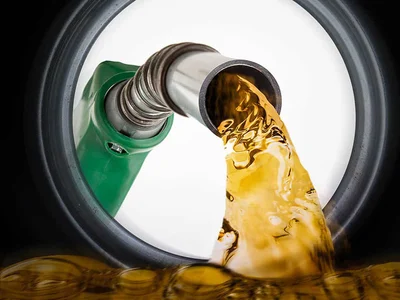Despite rumours, Nigerian Government has kept mum over what is deemed as ‘surreptitious’ payment of subsidy on the imported Premium Motor Spirit (PMS) otherwise known as petrol into the country, Straightnews has learnt.
Recall that on May 29, 2023, during his swearing-in speech, President Bola Tinubu announced an end to petrol subsidy regime, triggering a hike in the prices of goods and services in the country.
Many people had hailed President Tinubu who is also the Minister of Petroleum Resources over the removal of the subsidy which ex-President Muhammadu Buhari who doubled as the Petroleum Minister had earlier daubed it as a ‘‘scam.’’
The surprise announcement elicited marketers to have hoarded their products and made more profits from the old stock as the fuel cost peaked due to panicky buying, while the consumers bore the brunt of the announcement.
The International Monetary Fund (IMF) confirmed that the Nigerian government has, through the backdoor, resumed the payment of the subsidy.
Also read
- NNPCL Hikes Price of PMS despite economic hardship
- 55 Depots Stock PMS In Nigeria- NNPC
- NNPC Spends N623.16b On PMS Subsidy
Moreover, the former Trade Union Congress, TUC, President, Peter Esele, has alleged that the Federal Government resumed payment of fuel subsidy.
Esele who made the claim during an interview on Channels ‘Sunrise Daily’ show on Tuesday, February 20, said “Fuel subsidy is back, this is not something we should be arguing about, it is back and it’s even back in full force.”
A few weeks after the subsidy removal, the Central Bank of Nigeria (CBN) collapsed the different exchange rate regimes into one, with the value of the naira to the dollar weakening.
Over the weekend, the IMF issued a statement on the conclusion of its Executive Board’s Post Financing Assessment with Nigeria, and it expressed concerns that the government had capped the prices of fuel at retail stations.
The global lender advised the administration of President Tinubu to completely stop the payment of subsidies on petrol to free funds to run the government.
However, the Federal Government has not owned up the allegations nor dismissed the report over payment of the subsidy.
In the past few days, there have been reports of queues returning to petrol stations in major cities in the country, but the Nigerian National Petroleum Company (NNPC) Limited allayed the fears of consumers, assuring that it has enough to go around.
How petrol prices fared since subsidy removal
After the removal of the petrol subsidy in May 2023, the pump price changed from N185 per litre to N400 per litre, and then to N568 per litre at NNPC fueling stations, while others currently sell above N600.
The government had said the prices would fluctuate after subsidy removal from time to time but the pump price has maintained a steady rise despite the fact that the price of crude oil in the global market keeps going up and down.
The IMF, in its latest statement at the weekend, said the Tinubu administration has “capped retail fuel and electricity prices” ostensibly to “ease the impact of rapidly rising inflation on living conditions, thus partially reversing the fuel subsidy removal.”
Daily Trust investigation in September revealed that despite the numerous assurances by President Tinubu that the subsidy was gone, the federal government paid N169.4 billion as subsidy in August to keep the pump price at N620 per litre.
A document from the Federal Account Allocation Committee (FAAC), sighted by one of our reporters, showed that in August 2023, the Nigerian Liquefied Natural Gas (NLNG) paid $275 million as dividends to Nigeria via NNPC Limited.
NNPC Limited used $220 million (N169.4 billion at N770/$) out of the $275 million to pay for the PMS subsidy. Then NNPC held back $55 million, illegally.
Petrol may sell for over N1000/l due to devaluation
The exchange rate for a dollar to naira at Lagos Parallel Market (Black Market) players buy a dollar for N1705 and sell at N1710 on Thursday 22 February 2024, according to sources at Bureau De Change (BDC).
A breakdown of the landing cost of petrol before the latest devaluation showed that product cost was N627.82 per litre, finance cost was N11.61, and operations/administrative cost N12.32, bringing the total landing cost to N651.75 per litre with local currency pegged at N900/dollar ceiling.
The amount has seen independent marketers adjust pump price three times between August and December 2023, forcing them to sell between N660 per litre to N670 per litre.
NNPC retail outlets have, however, continued to sell at N617 per litre. But in some petrol filling stations particularly in Uyo, a litre goes for N670 or N690. But black marketers sell a litre N750 or more in Uyo and other neighbouring local government areas.
On February 15, 2024, the National Bureau of Statistics (NBS) reported food inflation rate in January this year was 35.41 percent on a year-on-year basis. This is 11.1 percent points higher compared to 24.32 percent rate recorded in January 2023.

